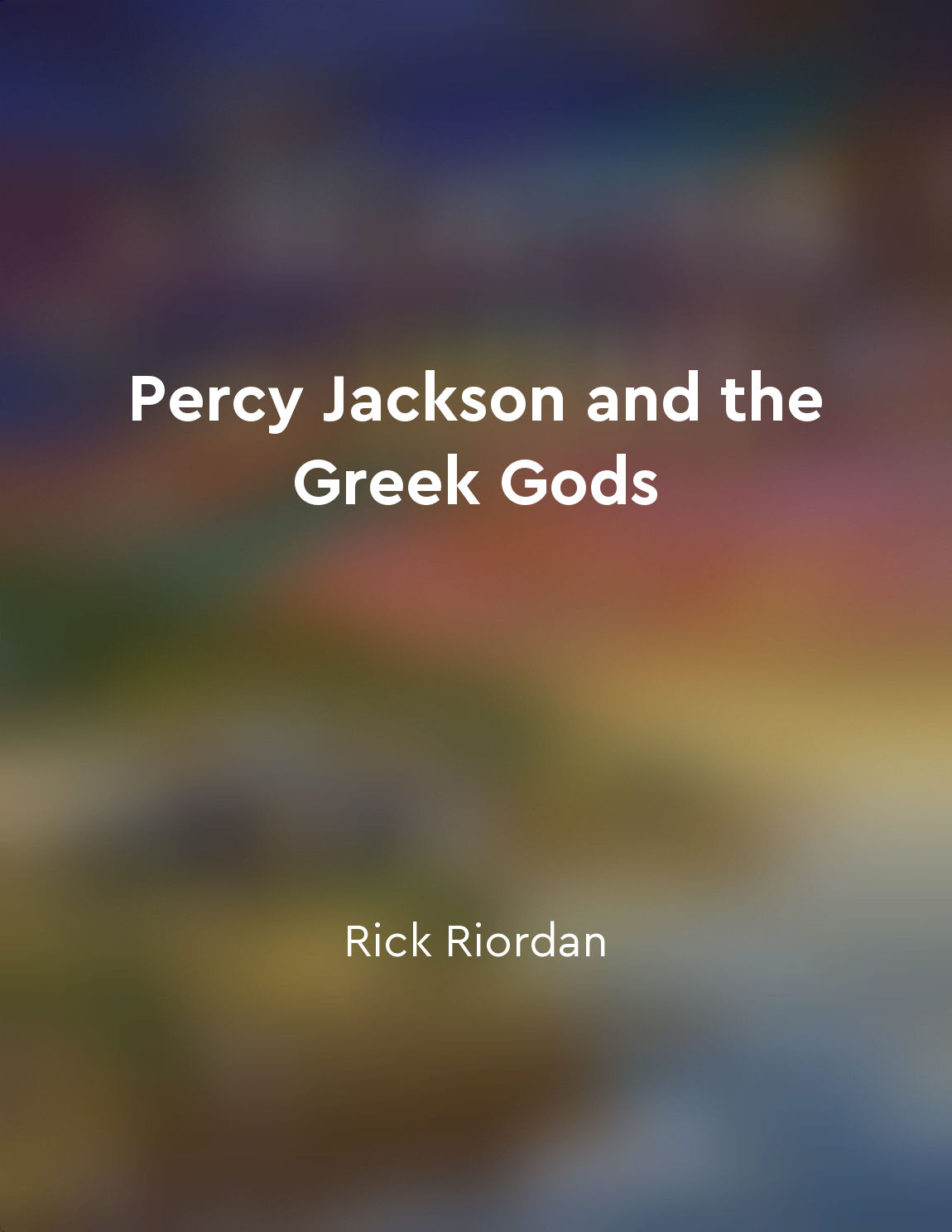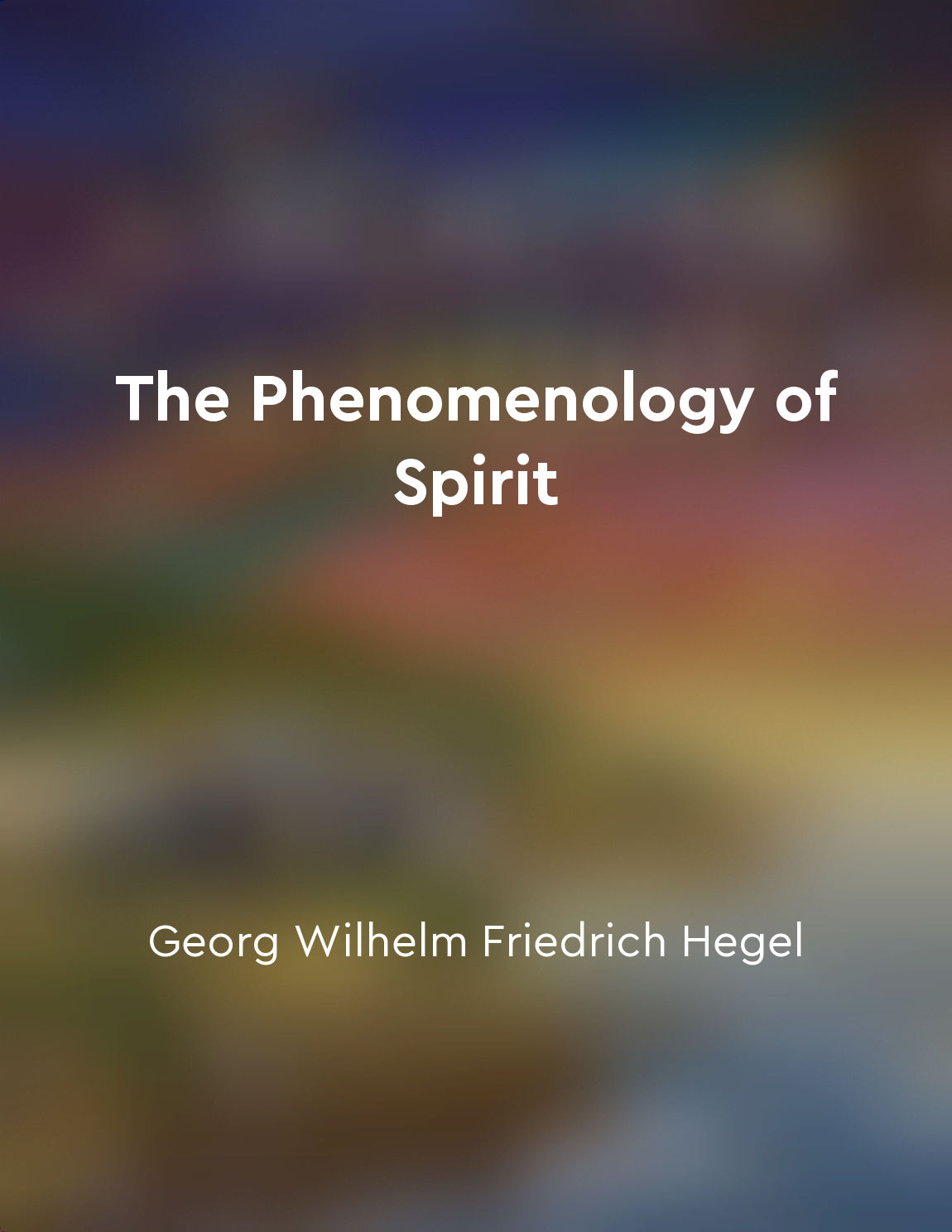The Dionysian intoxication frees individuals from the constraints of reason from "summary" of The Birth of Tragedy by Friedrich Nietzsche
The Dionysian intoxication, as envisioned by Nietzsche, is a state of being that transcends the limitations imposed by reason. In this state, individuals are liberated from the constraints of rational thought and societal norms, allowing them to experience a sense of unity with the world around them. This freedom from the shackles of reason opens up a realm of possibility that is not accessible through logical thinking alone. Through the Dionysian intoxication, individuals are able to tap into a deeper, more primal aspect of their being. This primal energy is raw and untamed, existing beyond the confines of rationality. It is a force that is chaotic and unpredictable, yet immensely powerful. By embracing this chaos, individuals are able to break free from the rigid structures that govern their lives and connect with a more authentic mode of existence. Nietzsche sees the Dionysian intoxication as a necessary counterbalance to the Apollonian principles of order and reason. While the Apollonian represents beauty, form, and harmony, the Dionysian embodies ecstasy, passion, and excess. By combining these two elements in the art of tragedy, Nietzsche argues that individuals are able to achieve a synthesis that transcends the limitations of either approach alone. In the Dionysian state, individuals are able to experience a sense of oneness with the world around them. This feeling of unity is not based on rational understanding or logical analysis, but rather on a deep, intuitive connection to the underlying essence of reality. It is a state of being that is characterized by a profound sense of liberation and spiritual ecstasy.- The Dionysian intoxication represents a form of transcendence that allows individuals to break free from the constraints of reason and tap into a deeper, more primal aspect of their being. Through this liberation from the shackles of rationality, individuals are able to connect with a more authentic mode of existence that is rooted in chaos, passion, and ecstasy.
Similar Posts
Pepys strives to improve his professional standing
Samuel Pepys, in his diary, reveals his relentless pursuit of advancement in his professional life. Throughout the entries, he ...

Aphrodite is the goddess of love and beauty
Aphrodite, the goddess of love and beauty, is one of the most well-known and powerful figures in Greek mythology. She is often ...

Philosophical exploration is necessary for understanding the complexities of morality
Philosophical exploration is crucial for delving into the intricate web of morality that surrounds us. It is through this deep ...

Individuality and universality
Individuality and universality are two essential aspects of human existence that are intricately intertwined in Hegel's philoso...
The birth of tragedy requires a synthesis of opposing forces
The birth of tragedy is not a simple occurrence that arises out of a single force or element. Rather, it is a complex process t...
The aesthetic experience of tragedy transcends individual suffering
The experience of tragedy in the realm of aesthetics is one that goes beyond the mere individual suffering of the characters in...
Struggle with inner demons
Throughout the pages of 'No Longer Human,' the protagonist grapples with a constant battle against his inner demons. These demo...
Virgil explains the reasons for their punishments
Virgil took me through the circles of Hell, showing me the torments of the damned. As we descended further into the depths, I s...
Nietzsche argues for a reevaluation of the value of tragic art in modern society
Nietzsche's exploration of tragic art in "The Birth of Tragedy" reveals a profound call to reassess the significance of this ar...

